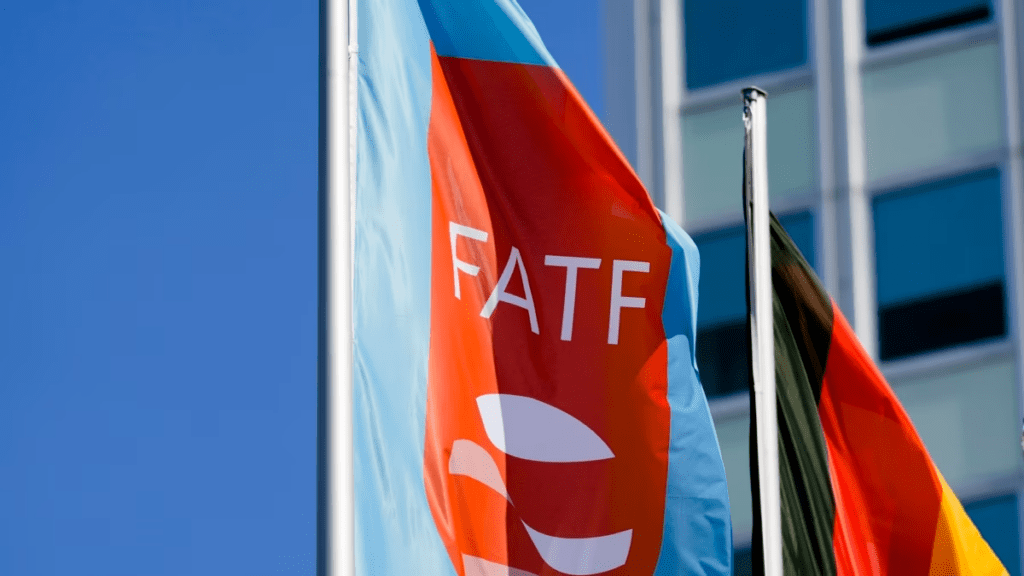Key Points:
- Kuwait’s Capital Markets Authority (CMA) issues a circular banning all major operations involving cryptocurrencies.
- The prohibition includes payments, investments, and mining of virtual assets, with a commitment to combating money laundering and terrorist financing.
- The CMA emphasizes that virtual assets lack legal status and are not supported by any government, warning customers of the risks associated with dealing in cryptocurrencies.
Kuwait’s financial landscape is witnessing a significant shift as the country’s main financial regulator, the Capital Markets Authority (CMA), has taken a firm stance against cryptocurrencies.

The CMA released a circular that has raised eyebrows in the cryptocurrency community by imposing an “absolute prohibition” on various operations involving virtual assets within the nation.
The circular explicitly outlines the major use cases and operations that are now banned in Kuwait, which encompass cryptocurrency payments, investments, and even mining activities. In addition to these prohibitions, the CMA also restricts local regulators from granting licenses to businesses for providing virtual asset services on a commercial basis.
The move is part of Kuwait’s broader strategy to combat money laundering and terrorist financing, a critical concern for financial authorities worldwide. The CMA’s actions also align with the recommendations of the Financial Action Task Force (FATF), which has been actively addressing the issue of virtual assets in its guidelines.

Within the circular, the CMA emphasized the importance of adhering to Recommendation (15) issued by the FATF. According to this recommendation, virtual assets are defined as assets that possess a digital representation of their value, can be traded or digitally transferred, and are used for payment or investment purposes. However, it explicitly excludes digital representations of paper currencies, securities, and other financial assets.
In light of this definition, the CMA reiterates that virtual assets do not carry a legal status, nor are they issued or supported by any government or entity. As such, it deems using virtual assets as a payment instrument/method or recognizing them as a decentralized currency in Kuwait as absolutely prohibited. Additionally, the circular warns against dealing with virtual assets as an investment tool and urges businesses to refrain from offering such services to clients.
The circular further states that no natural or legal person within Kuwait will be granted a license to provide virtual asset services as a commercial business. This stringent measure aims to curb the proliferation of virtual asset operations within the country.

While Kuwait’s regulatory authorities have taken a tough stance on cryptocurrencies, the circular makes an exception for securities regulated by the Central Bank of Kuwait and other financial instruments under the purview of the Capital Markets Authority. These traditional financial instruments are not affected by the ban on virtual assets.
The CMA also emphasizes that engaging in any form of virtual currency or asset mining is strictly prohibited within Kuwait. It places the onus on customers to be fully aware of the risks associated with dealing in virtual assets, particularly encrypted currencies, which are known for their volatile nature and speculative pricing.
The circular concludes by warning that anyone violating its provisions will be subject to penalties stipulated in Article (15) of Law No. 106 of 2013, which pertains to combating money laundering and terrorist financing. These penalties will be applied without prejudice to additional penalties set forth by each supervisory authority.
As the CMA’s circular takes effect, Kuwait joins a growing list of countries implementing stringent regulations to govern the use and trade of cryptocurrencies, reflecting the broader global debate on how to balance the potential benefits of digital assets with the need for consumer protection and financial stability.
DISCLAIMER: The information on this website is provided as general market commentary and does not constitute investment advice. We encourage you to do your own research before investing.






















